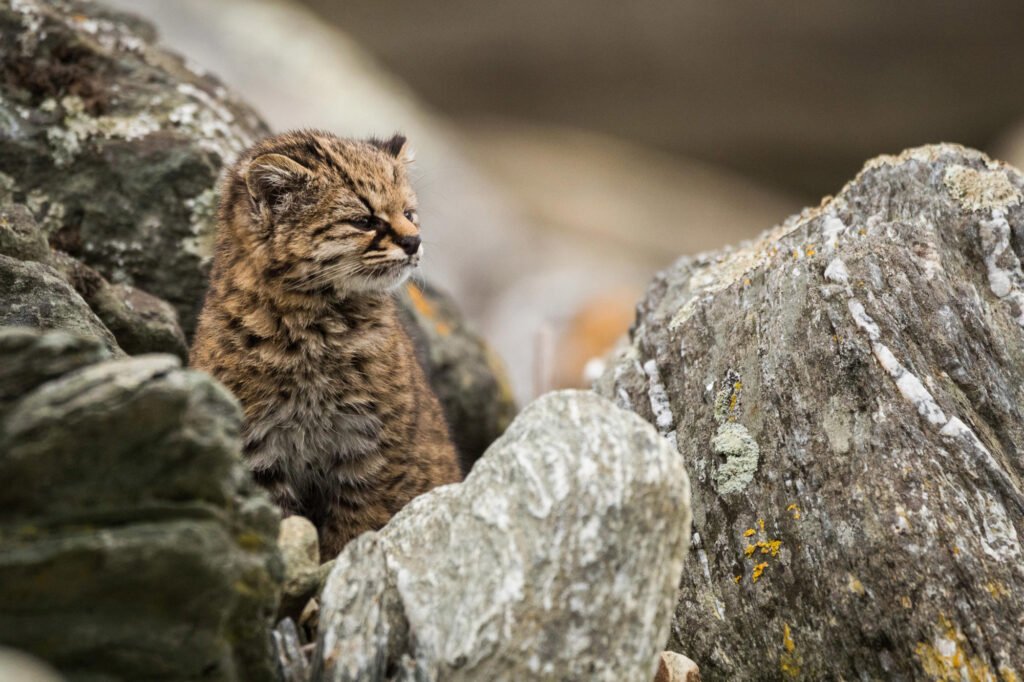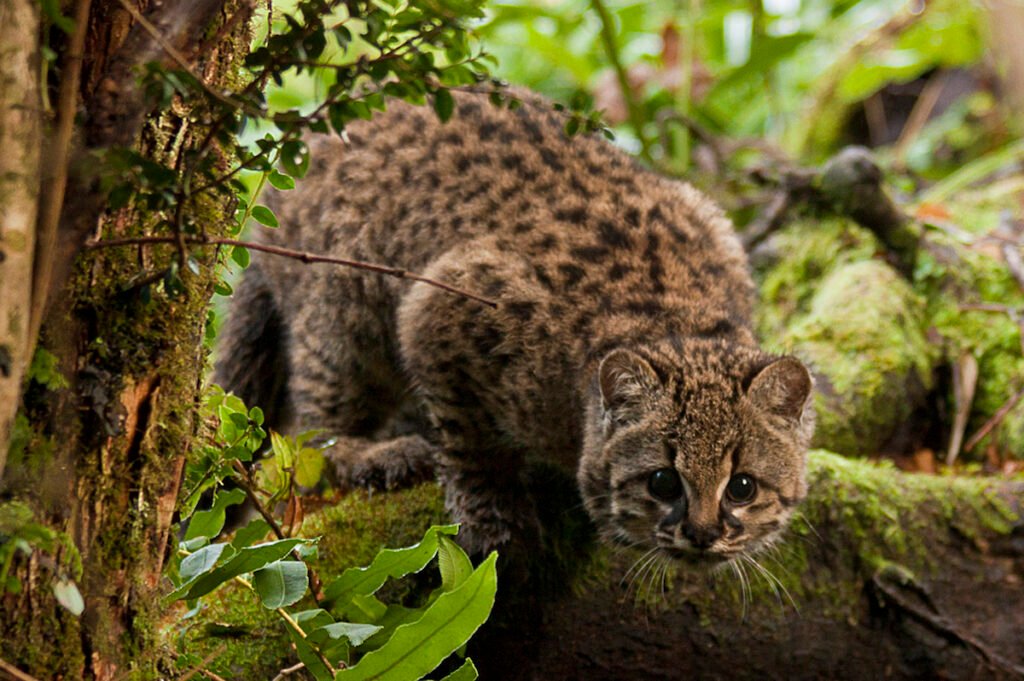
The guiña, also known as the kodkod (Leopardus guigna), is the smallest wild cat in the Americas, and one of the smallest cat species globally. It is exclusively found in the temperate rainforests and scrublands of central and southern Chile and, to a lesser extent, adjacent areas of Argentina. This diminutive feline typically weighs between 2 to 3 kilograms (4.4 to 6.6 pounds) and is characterized by its small head, relatively short tail, and a dense, so coat that can range from grizzled brown to reddish-brown, profusely marked with small, distinct black spots. Guiñas are primarily nocturnal and largely arboreal, though they hunt on the ground as well. Their diet consists mainly of small rodents, birds, insects, and reptiles, showcasing their adaptability in their forested habitats.

The guiña plays a crucial ecological role as a mesopredator in the unique temperate rainforests of South America. By preying on small mammals and birds, they help regulate these populations, which prevents overgrazing by herbivores and supports the overall health and diversity of the forest understory. Their dependence on relatively intact forest ecosystems makes them an important indicator species; their thriving presence suggests a healthy and biodiverse environment. Furthermore, as a native predator, the guiña contributes to the complex food web of these specific forests, ensuring the continuation of natural processes. Protecting the guiña and its rapidly diminishing forest habitat is vital not only for the survival of this remarkable little cat, but also for the preservation of one of the world’s most unique and biodiverse temperate forest ecosystems.
Every day, wild cats around the world face threats like habitat loss, poaching, and natural climate progression. But hope isn’t lost. With your support, we can protect these majestic animals and preserve their habitats.
Join our growing community of wildlife champions and help create a safer future for all 40 wild cat species.
Zoo-EV is a nonprofit organization dedicated to the protection and preservation of the world’s 40 wild cat species through education, community engagement, and conservation initiatives. Zoo-EV is recognized as a 501(c)(3) tax-exempt organization by the IRS, with the Employer Identification Number (EIN) 88-3636567.